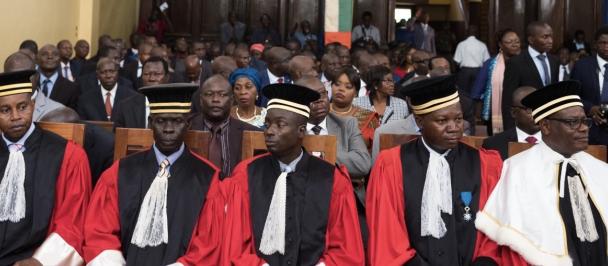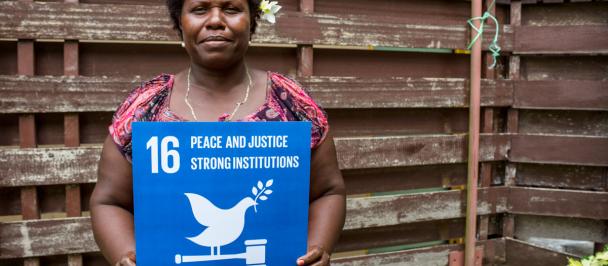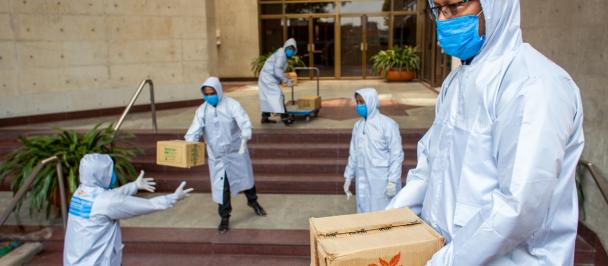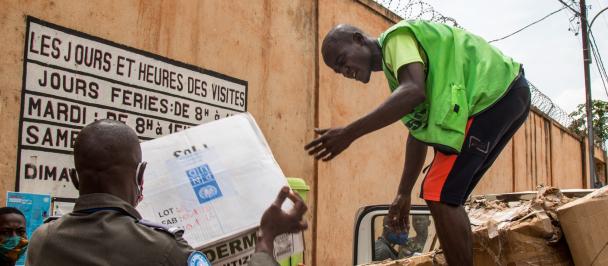From health to education, from economy to social protection, the COVID-19 crisis has touched every aspect of our lives. Two global phenomena in particular have seen seismic changes; human mobility and how digital technology is shaping the world of work.
Since early 2020, a profound disruption has affected all forms of human mobility, especially international migration. People have been stranded at borders – some unable to leave their home countries, others unable to return home from living abroad. In 2020 alone, travel restrictions slowed the growth of global numbers of migrants by 27 percent, or two million migrants.
Studies show that migrants were often at a greater risk of becoming sick, with COVID-19 infection rates double for them in some OECD countries. An equivalent of 400 million jobs were lost during the second quarter of 2020, with a disproportionate impact on migrants.
Migrants continued to send home money, often digging into their savings as many lost their livelihoods. Although remittances did fall, causing much pain, they did not drop by much as first feared. Migrants used online banking tools, underlining the importance of digital technology in keeping the economy moving.
The rapid adoption of digital tools has been a key hallmark of the pandemic. Artificial intelligence, cryptocurrency, virtual reality, the Internet of Things and many new technologies were already transforming work. With the need for social distancing and curbs on travel, this digital transformation advanced exponentially.
For migrants and displaced people, just like all others who aspire to a better life, digital technology offers unique benefits and opportunity to improve their livelihoods. Online, they can learn skills, access critical information and services, and build networks. They can find better work, start businesses or explore new marketplaces.
Digital innovation for Bangladeshis
Natural disasters have displaced almost 700,000 Bangladeshis every year over the last decade. Around 400,000 arrive in Dhaka annually, while others search for opportunities abroad–one tenth of Bangladesh’s labour force is employed in other countries.
To better support Bangladeshis who have either moved internally or migrated internationally, UNDP helped establish and staff Aspire to Innovate (a2i), a governmental programme that uses digital technology to provide health, education and livelihoods.
A2i has developed an online portal for migrant workers, forcibly displaced people and host communities to improve their chances of finding better work by building their skills through online training and by connecting them to job opportunities.
The platform also helps migrant workers overseas. There are six expatriate digital centres, including three in Saudi Arabia where a third of all Bangladeshi migrants go for work.
Another a2i project provides Rohingyas living in camps in Bangladesh and the local host communities the online tools necessary to develop fashion lines and connect them with the international market.
Sharifa, an ethnic Rohingya living in a camp in Bangladesh, was able to distribute her handicraft products through a big e-commerce network after receiving business training, earning herself a healthy income.
A2i’s success in Bangladesh has inspired UNDP to expand this model internationally by sharing the learning, models and methodologies with other countries. The platform has already been adapted for Syrian refugees in Turkey, and UNDP is looking to see how it can be used for Syrians in Jordan and Venezuelans in Colombia.
In Turkey, Syrian refugee and skilled web developer Faisal is providing online business advice to other Syrians through a2i, such as how to set up, gain accreditation and market themselves as freelance workers through the platform.
The future of human mobility
Every year, the Global Forum on Migration and Development (GFMD) brings governments together to shape debate on migration and its development potential. This year’s GFMD summit (18th to 26th January) looks at the future of human mobility, and high on the agenda is new technologies.
The pandemic has highlighted the importance of digital tools in enabling migrants to sustain their livelihoods. A 2019 UNDP report, Migrant Union: Digital Livelihoods for People on the Move, identifies the gaps between available digital tools and services, the policies that govern them and the needs and behaviours of migrants. Partnerships are key to create opportunities. The private sector, who are holders of these digital tools and marketplaces, as well as seekers of migrant skills, are critical to achieve inclusivity at scale.
UNDP is ready to support governments and the technology community build partnerships to create opportunities so migrants are not left behind in the digital revolution. We urge that policymakers at the GFMD would set an ambitious agenda to ensure migrants at all skill levels can amplify their contributions to development using technology.

 Locations
Locations




